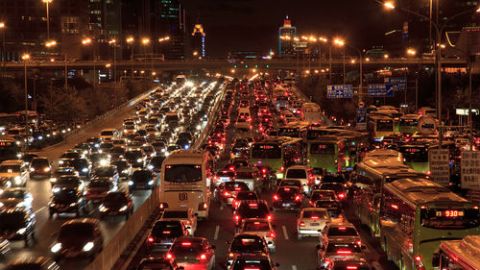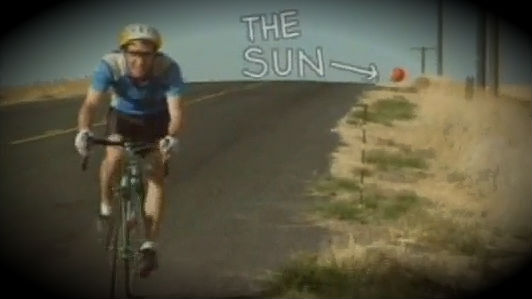The True Cost of Congestion

What’s the Big Idea?
No one would accuse Gernot Wagner of having an environmentally irresponsible lifestyle. “I don’t drive,” he tells Big Think. “I don’t even have a driver’s license. I don’t eat meat. I try to do all the right things.”
And yet, are his actions making a difference? No. And your personal decisions won’t make a difference, either, Wagner argues in a provocative new book, But Will the Planet Notice? How Smart Economics Can Save the World.
Gernot Wagner is an economist at the Environmental Defense Fund who describes economics as “organized common sense.” In other words, people respond to incentives, and therein lies Wagner’s solution for solving some of our most vexing environmental challenges. One example that Wagner tackled in his book and fleshed out in a recent interview with Big Think, is the public cost of traffic congestion.
Watch the video here:
What’s the Significance?
What is the public cost of a private decision? When it comes to driving, Wagner says “you wouldn’t be doing it if it didn’t make sense to you. Your benefits are greater than your personal costs.”
And yet, there are public costs such as pollution and congestion. Here is how Wagner describes the cost of congestion: “You driving on that bridge prevents someone else of being in that same spot as you are.”
So, what to do?
Economic regulations such as so-called “Congestion Pricing” attempts to incorporate these costs and “tries to make you personally incorporate the costs of your decision to get up, get into your car” and then look at “the true dollar value of the cost of driving and say, “Well, it still makes sense to me because the benefits are more than the costs.””
Or, on the other hand, you may decide to take the subway instead of driving in a congested area like New York City. That is because if the costs have changed individuals have been incentivized to take public transport “as opposed to sitting in a car idling and causing that pollution damage, causing that congestion cost, shoving that off onto everybody else.”
Image courtesy of Shutterstock
Follow Daniel Honan on Twitter @Daniel Honan





